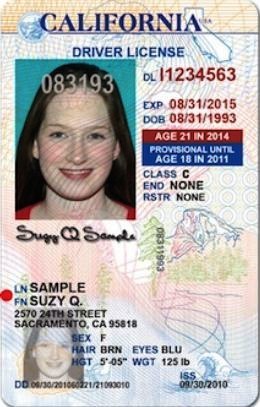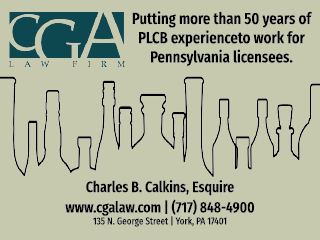PLBTA Tip: Carding … Never Out Of Style
 Back to school means it’s fake ID time too!
Back to school means it’s fake ID time too!
Soon college campuses will be full again. Classes will be in session. And football stadiums filled on Saturdays.
For businesses in a college town, it’s a blessing. With students returning (and parents visiting), local businesses can expect increased walk-in traffic.
For the local bars and taverns, it also means an increase in the number of fake IDs showing up. And these aren’t your father’s fake IDs. They’re much more convincing and significantly more difficult to detect than in the past.
There was a time when bouncers and servers had an easier time catching a fake ID. Years ago, they were likely made by a student working out of his dorm room using an instamatic camera and white card board.
Today, websites located in foreign countries have come close to perfecting any state driver license.
On one of the most popular fake ID websites (we won’t mention the name here as we don’t want to give it any publicity), underage students can purchase a fake ID using cryptocurrencies such as Bitcoin. For a fake Pennsylvania ID the cost is $200 for two fake IDs plus a lifetime replacement. The student supplies a photo and regular information you’d find on any driver’s license via the website.
Shortly later, a package arrives via the campus mail to the student dorm room. Sometimes the package contains a stuffed animal, while other times the package may be a pair of shoes or another item. Regardless, somewhere in that item are the fake IDs. This technique makes it easier for foreign websites to get their packages past U.S. Customs and into the hands of underage students.
What makes these fake IDs difficult to catch is that they are scannable, making it tougher than ever before in detecting one.
So, what should a bar do to battle fake IDs? Consider the following:
- Cops in Shops … while these fake IDs look very convincing, law enforcement have detected at least one fatal flaw (we won’t mention it in this article as we don’t want to tip off the bad guys). Work with local law enforcement to have an officer at your bar posing as a bouncer.
- Dressed Officers … ask your local police to work with your bouncer at the door checking IDs. Bouncers are trained to give back all IDs, even if they’re fake. On the other hand, police will confiscate fake IDs, thus getting one off the street.
- Flashlight Tip-off … shine a flashlight through the card. If the light comes through as a color, it’s fake.
- Bend the card … fake IDs sometimes present a crease in the laminate.
- Feel the card … fake IDs often feel smoother.
- Trojan Horse … know who you’re hiring as your bouncer and servers. You don’t want the popular frat guy letting all of his brothers in regardless of age.
- Scanners … use them, but also do a visual. Scanners will help you document the carding which may be useful later.
- Tough questions … ask the owner of the ID card tough questions such as “what’s your zodiac sign” and “can you tell me the location where you got your driver’s license photo taken.”
- Student ID … ask if they also have their student ID with them and if you can see it too.
- Bouncer coalition … work with other establishments in your area to get the bouncers to talk to one another so that everyone knows what the others are seeing. Often times trends develop such as seeing a number of licenses coming from certain states.
It’s typically recommended to card anyone who looks younger than 35. Some establishments card everyone as a matter of policy. If you do that, and a fake ID accidently gets by, you’ll have some protection. Pennsylvania liquor code states that no penalty shall be imposed against a licensee or its employee for serving alcohol to a minor if it is established to the satisfaction of an administrative law judge that (1) the minor was required to produce an acceptable for of identification; and (2) either (a) the minor completed and signed a declaration of age card, (b) a photograph, photocopy, or other visual or video presentation was made, or (c) the identification was scanned by a transaction scan device and found to be valid; and (3) these documents were relied upon in good faith.
As such, it’s also best that a licensee document the carding of each customer and retain that information for two years.
The above article was republished from the Pennsylvania Observer, the official magazine of the Pennsylvania Licensed Beverage and Tavern Association.






